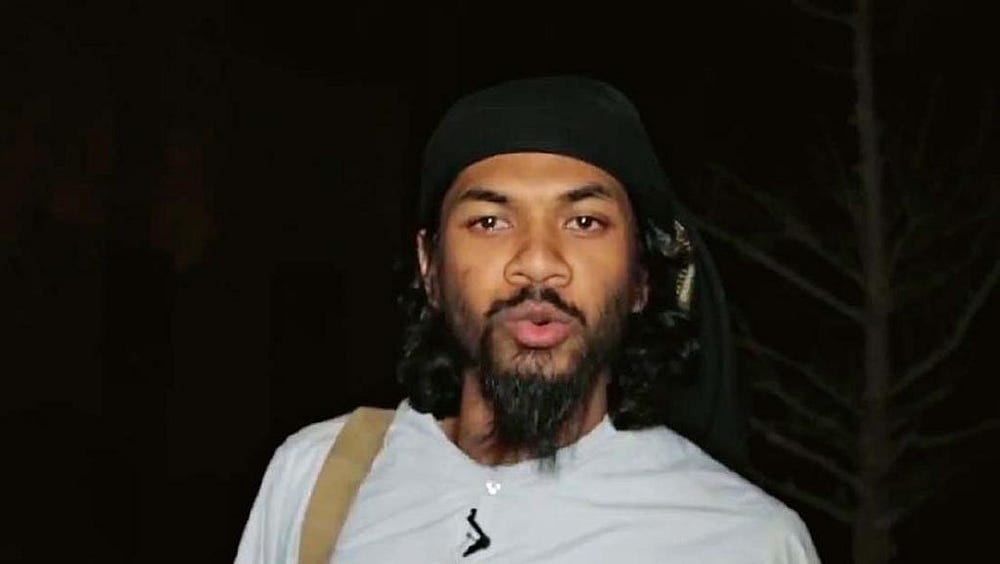By John Stapleton
An Ordinary Boy
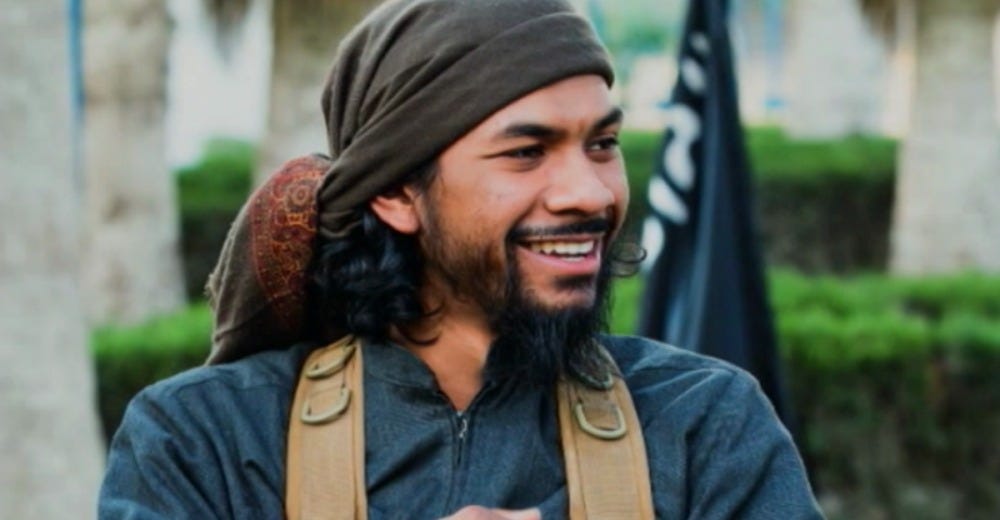
Prakash’s isolation or marginalisation, unable to connect or belong anywhere, have been a major influence on what has happened to him.
For him, as it has for many, joining in this extremely negative social circle was a way to find connection and meaning, a sense of purpose in life.
There have been all sorts of studies, psychological, scientific, demonstrating that lack of identity, belonging and connectedness is the major factor for radicalisation.
I am not a fan of incarceration for young offenders. It doesn’t help people find identity or a sense of belonging and makes the subjects fall out of society even more.
But Prakash appears to have done some terrible things and has been a major recruiter for Islamic State.
From that perspective he needs to face the music for his crimes.
Abu Khaled al-Cambodi
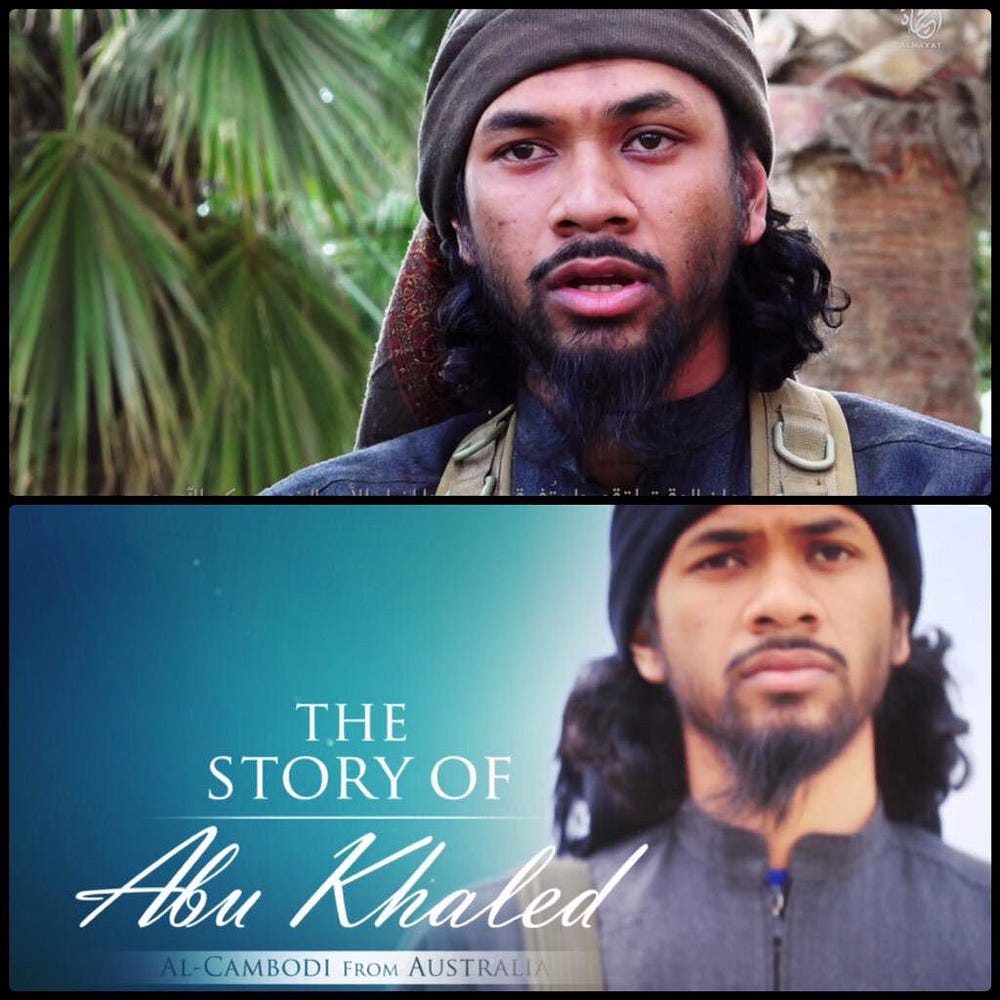
You kill him [for] Allah has promised you a place in Paradise. Now Is The Time To Rise… Now Is The Time To Rush For That Reward That Allah Has Promised You.
Now is the time to rise, now is the time to wake up … You must start attacking before they attack you.
Look how much [sic] of your sisters have been violated. All I hear on the news in Australia is this sister was hurt … her hijab was ripped off. But no, you see the brothers sitting.
I ask you brothers, when are you going to to rise up and attack them, for them attacking you?
I invite the Muslims to come here. I tell you that this is the land of life.
The media has portrayed that we come here because we were social outcasts, because we had nobody we had to turn to Islam, because we were just trouble-makers in the past. This is far from the reality. We see people from all walks of life here.
We perform jihād so that Allah’s word becomes supreme and that the religion becomes completely for Allah. Everyone who opposes this goal or stands in the path of this goal is an enemy for us and a target for our swords, whatever his name may be and whatever his lineage may be.
The Undead
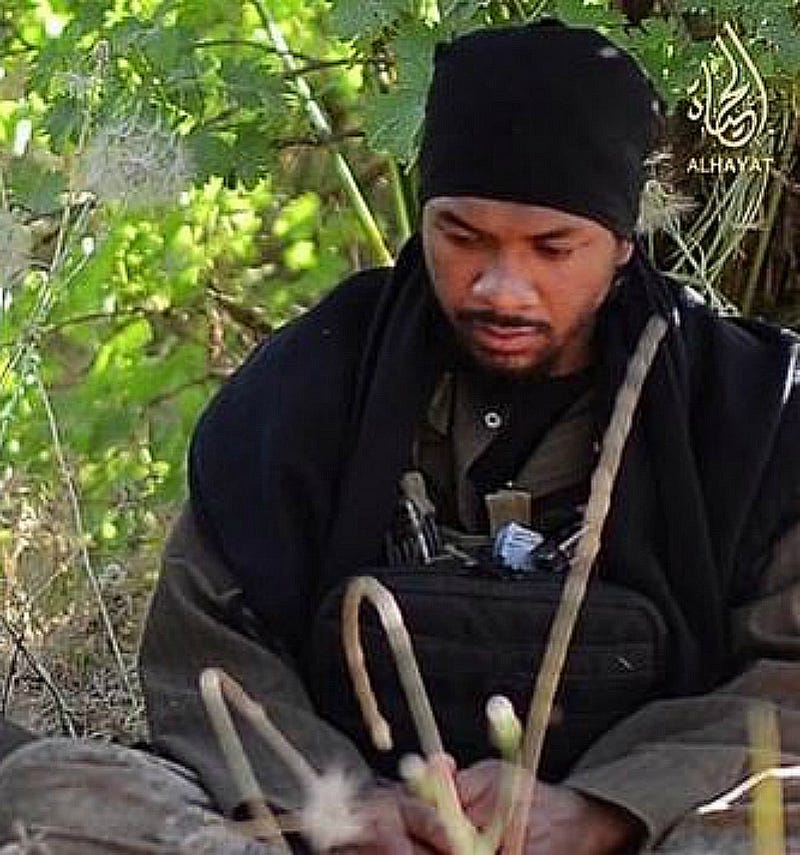
He was the principal Australian reaching back from the Middle East … in particular to the terrorist networks in both Melbourne and Sydney.
He was the person of greatest concern to us.
I have no sympathy for him. I would never revel in the death of any man even one like Prakash, but the community is much safer without him. Neil Prakash had a tough life, but plenty of people have tough lives. He made terrible decisions.
He threw his lot in with the most evil terrorist group on Earth. He has done it freely. He has done it enthusiastically.
However vulnerable he may have been in his youth, he became a very dangerous and cynical man
I feel sympathy for his mother and the people who loved him. But I don’t have sympathy for him. The fact is that just as the community is safer, so am I.
Neil Prakash’s death is a very, very positive development in the war against Daesh and the war against terror.
Grandstanding
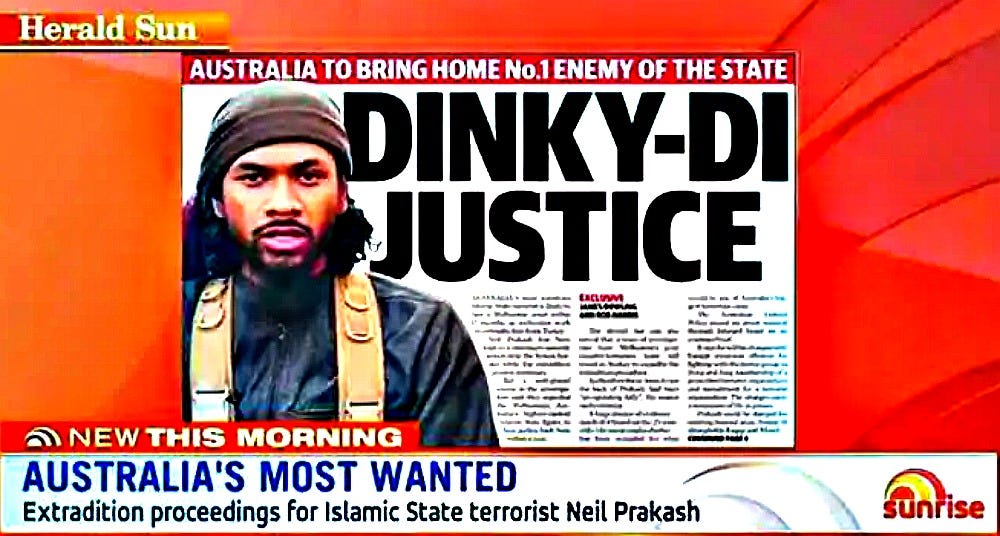
He is highly influential.
I have no doubt that with his role, position, die-hard proselytisation and experience he would be highly problematic in the Australian prison system.
We are satisfied that Neil Prakash — who has been one of the key financiers or organisers in ISIL or Daesh, this barbaric terrorist group — he will be brought back to Australia and he will face the courts.
We should be getting him back within months.
We have an extradition treaty with Turkey. It’s just as well we do, because otherwise we wouldn’t be able to get him back and ensure that this man faces justice in Australia.
He is one of the most dangerous people in that region.
Neil Prakash should never, ever be released from custody, and I will do everything I can to ensure that he remains behind bars, full stop.
Saying It Is So Doesn’t Make It So.
Allah is the legislator, not him.
He is not a judge, he is the enemy of Allah and he will always be the enemy until he repents.
Democracy is not legitimate. Islam is justice.
Officially Disowned
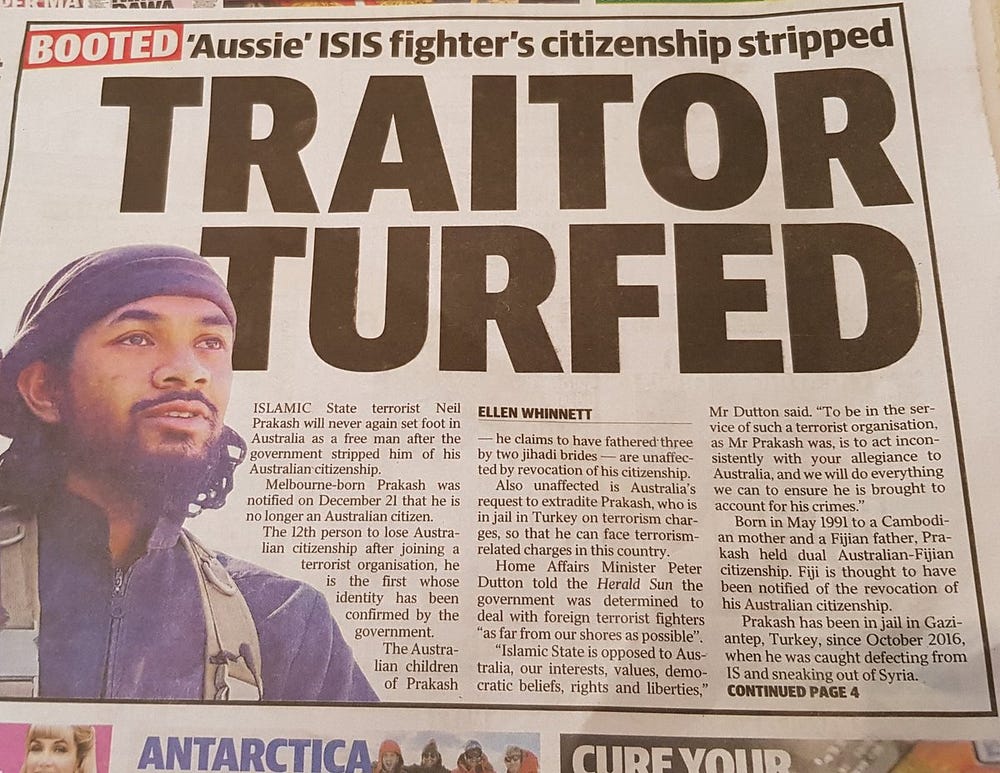
The government has made a complete mess of the Neil Prakash citizenship revocation, in a case of such ballsed-up diplomacy that it is much more Monty Python than Yes Minister.
And There It Stands
I was not even approached by any kind of Australian government official, not by text or SMS message, or email or telephone.
At the time of Prakash’s birth in 1991, the Fijian constitution stated that any person born to a Fijian father after 1987 automatically became a citizen of that country, regardless of where they were born.
But it is unclear whether subsequent constitutions and legislation put in place since then have nullified those citizenships.
Mr Prakash’s case was brought to my attention after careful consideration by the Citizenship Loss Board that Mr Prakash’s Australian citizenship had ceased by virtue of his actions in fighting for Islamic State from May 2016.
Neither the Citizenship Loss Board nor I make decisions on whether an individual ceases to be an Australian citizen, as the provisions operate automatically by virtue of a person’s conduct. The Government has been in close contact with the Government of Fiji since Mr Prakash was determined to have lost his citizenship.
Australia will continue our close co-operation with Fiji on this issue.
Legally I think the government is wrong. You can’t make someone stateless by law.
By making someone stateless you are not addressing the issue, you are making someone very dangerous.
I take a sympathetic position on younger offenders, but Neil Prakash is a dangerous person. He will remain a dangerous person.
He is in a Turkish prison, but how long he is detained is another story.
He would be highly problematic and difficult to manage, but it would be safer for him to be in an Australian correctional facility where he can’t get out.

